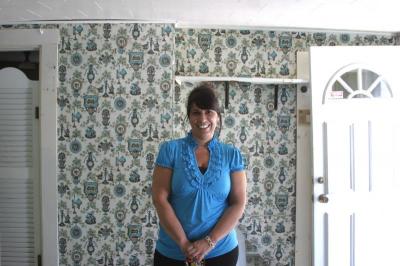New demolition bylaw stalls project, preserves 1782 house


A new bylaw delaying demolition of historic buildings nearly derailed plans for a new preschool, but it may result in the preservation and restoration of an 18th-century house.
The bylaw, which requires a six-month delay and consideration of alternatives before any historic buildings can be demolished, was enacted at the October 26, 2009, Town Meeting.
Properties covered by the new law were identified in a Public Archaeological Laboratories survey in 2005 which classified properties more than 50-years old as having low, medium or high significance. Considered in making the classification include age, architecture, significance in a town's history, or a combination of these factors.
"Without this bylaw, properties that are significant to Wareham can be too easily lost," said Historical Commission member Robin Ragle-Davis. "Once one of these properties is gone, it is gone forever."
A year before the bylaw was passed, Maria La Porta, owner and operator of Best Friends Preschool on Windsor Drive thought that she had found the perfect property to open a larger facility.
The school has grown from her self and six students in 1990, to eight teachers, 40 students and a waiting list, today. Looking to expand, La Porta bought a 4.24-acre property with an 1,156-square-foot home near the intersection of Sandwich Road and Cranberry Highway in December 2008.
Yes, the house would have to be torn down, but the price was right. The property was put on the market for $309,000 in October 2007. La Porta paid $200,000 with $60,000 down. Plus, the house had sat empty for years and was falling apart. She would be fixing up an eyesore, creating jobs, and providing high-quality education.
She had no idea and no indication that she had purchased a building classified as having "moderate significance" historically and that, less than a year later, would be subject to the demolition delay.
"I should've known before I purchased the property that it had historical significance," La Porta said. "If I had known, I wouldn't have bought it."
Instead, La Porta became what she described as "the guinea pig," of the new bylaw.
Ragle-Davis explained that, when a person applies for a demolition permit, the Historic Commission is notified and determines whether the property is significant. If it decides the property merits further investigation, the commission calls a public hearing to hear concerns. It then makes a determination whether the property should be preserved. If so, it will impose the delay and work with the property owner to find a solution. If no solution to preserve the property can be reached after six months, the demolition can proceed.
Ragle-Davis said that any property 50-years old or over could potentially be affected by the demolition bylaw. Since the statute took effect, however, only three (not including La Porta's property) of "a number of properties under review" have qualified as significant enough to trigger the bylaw.
La Porta did not yet apply for the demolition permit, but found out about the bylaw when presenting her site plans to the Planning Board. The board informed her about the demo-delay bylaw, and she learned that she would have to spend time, energy, and money to try to find somebody willing to take the house.
"We're fortunate that we're full and we have a waitlist and people know us," La Porta said before somebody willing to restore the house had been found. However, "this whole thing will hold me up. I'm losing money by not being able to accommodate families. I'm already getting calls for enrollment."
A week later, she feels very lucky. Alicen McGowen and Gerry Unger have restored several historic houses including their current house, a mid-19th-century saltbox located about three lots across the street from La Porta's new property. They have agreed to make La Porta's building their next "project," and McGowen is currently using her experience as a former museum director (which included grant-writing) to finance moving the house to their front yard and the repair work.
"I'm certified in historic restoration and preservation, and when I heard that house needed a home, I thought 'why not keep it in the neighborhood?'" McGowen said.
McGowen anticipates that the process will take a year and cost somewhere between $20,000 and $50,000. She hopes grants and volunteer donations and collaborating with the town to minimize other costs affiliated with moving a house (such as building permits, hiring the fire and police departments to supervise the move, etc.) will minimize costs.
McGowen eventually would like to restore the home's two front rooms in period furnishings. Her husband operates a nonprofit for veterans with traumatic brain injury, and he will use part of the house as an office.
"If we can raise the money, I think we should do it for the town," said McGowen. "It's living history."
All sides agree that we need to be educated about history...including the laws that preserve it.
"Going forward, this is a step [property owners] will all know about early in their process and shouldn't present a burden to those who come before us early," said Ragle-Davis.
"I think that we need more education around this demo-delay bylaw," said Selectman Cara Winslow, who was contacted by La Porta about the issue and connected her with Town Administrator Mark Andrews and Community and Economic Development Association Director Chris Reilly. Winslow said she was surprised that the bylaw would impact the property, especially since the property had sat vacant, and the new preschool would create nearly 20 jobs.
"I still think it's a good thing for the community, because history is important," Winslow said. "But we have to balance the needs of the future with the preservation of the past."
Meanwhile, La Porta plans to move forward with the new branch of her preschool."Could you believe it?!," she wrote when she emailed with the news of McGowen's plans.
Of course, her days as a guinea pig may not be over. Last month's Town Meeting added a "no-activity zone" to wetlands within 60 feet of commercial property that may impact her plans.

















